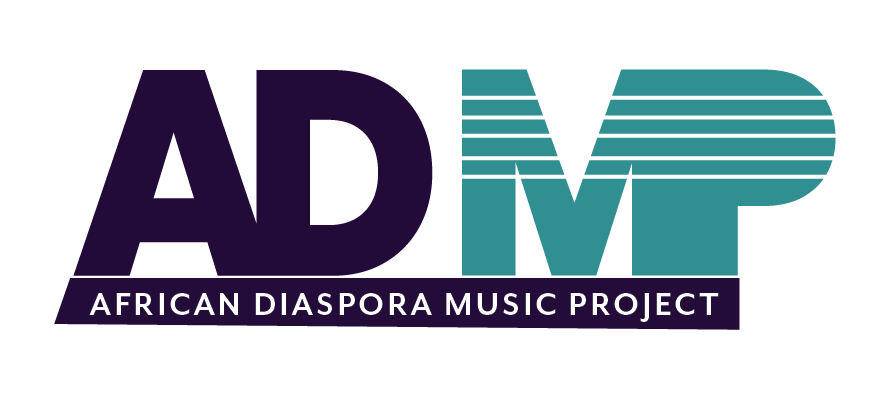Curated Lists are suggestions of orchestral pieces by African Diasporic composers from champions of this repertoire in the field. Curated lists were created by request after ADMP directors Louise Toppin and James Blachly presented at the National Conference of the League of American Orchestras 2022 in Los Angeles, CA. Symphony leaders at the conference requested suggestions to help them thoughtfully program more diverse repertoire into their seasons. The list below is the 10+ selections of historic and new composers suggested by 9 prominent conductors/arts administrators. The list is not meant to be exhaustive or exclusionary but merely some personal suggestions of pieces they have programmed or enjoyed and that were well received by audiences. Enjoy and explore!!!
- Louise Toppin and James Blachly

James Blachly
Associate Editor and Orchestral Liaison for ADMPConductor, Composer
Music Director, Johnstown Symphony Orchestra
Music Director, Experiential Orchestra
String Orchestra
- Reflections on a Memorial by Quinn Mason (9)
- Source code for string orchestra by Jessie Montgomery
- Sinfonietta No. 1 by Coleridge-Taylor Perkinson
- Prelude for Piano by Julia Perry / arr. Roger Zahab
- Out of the Silence (with flute and piano) by William Grant Still
Full Orchestra (Double Winds)
- Soul Force by Jessie Montgomery (10)
2222/4331/Timp+2/str - Short Piece for Small Orchestra by Julia Perry (8)
2222/2220/Timp+2/hp/pno/str - Lachrymosa: 1919 by Adolphus Hailstork (12)
0022/0000/str - Idyll by Samuel Coleridge-Taylor / arr. by Rotem Weinberg
- Runagate Runagate for Chamber Orchestra by Wendell Logan
Septet + tenor
Full Orchestra (Triple Winds)
- Negro Folk Symphony by William Levi Dawson
3333/4331/Timp+3/hp/str - Montgomery Variations by Margaret Bonds / arr. Michael Cooper
2333/4341/Timp+2/hp/str - Overture to “The Song of Hiawatha” by Samuel Coleridge-Taylor
3222/4231/Timp+2/hp/str - Rejoice by Courtney Bryan
3333/4331/Timp+2/hp/pno/str - Dream Elegy by Jonathan Bailey Holland (8)
3333/4331/2perc/hp/str - Short Piece for Large Orchestra by Julia Perry
3333/4331/Timp+3/hp/pno-cel/str - Epitaph for a Man Who Dreamed by Adolphus Hailstork (8)
3223/4331/Timp+2/hp/str - Tethered Voices by James Lee III / Text by Kalena Bovell
2222/4221/Timp+3/hp/pno/narrator/str - Toast of the Town Overture by Quinn Mason (7)
3222/3231/Timp+2/hp/str - Songs of Harriet Tubman by Nkeiru Okoye (25)
2121/4211/Timp+3/pno/str - Voices Shouting Out by Nkeiru Okoye (5)
3232/4321/Timp+3/hp/str

Kalena Bovell
Conductor, composer and poetAssistant Conductor, the Memphis Symphony Orchestra
Conductor, the Memphis Youth Symphony
Former Music Director, the Civic Orchestra of New Haven
Accomplished poet, published book of poetry "Dear Soul..." (2009)
- Nightscape [The Horniman Serenade] by Eleanor Alberga (21')
0 2 2[1.2/Eb]2 – 4 0 0 0 – 2 Basset horn – Double Bass - Starburst for Chamber Ensemble by Jessie Montgomery/ arr. J. Norporth (5')
2 0 2 0 – 0 0 0 0 – hrp [opt] – pno – str - The Spark Catchers by Hannah Kendall (10’)
2 [1.2/pic] 2 2[1.2Bcl] 2 – 4 2 2 [plus basset horn] 1 – hrp – 2 perc – str - Disillusioned Dreamer by Hannah Kendall (12’)
2[1.2/pic] 2 2 2 [1.2/cbn] – 4 2 31 – hrp – 2 perc – str - For Roscoe Mitchell by Tyshawn Sorey (20’)
2 2 2 2 – 2 2 0 0 – tmp – solo vc – str - New Nation Rising: A 21st Century Symphony by Shirley Thompson (40’)
Orchestra, Solo Voices, Spoken Word Artist, Choir, Dhol Drummers/Talking Drums, Kit Drum - Three Movements for Strings by Shirley Thompson (16’)
Str - Tethered Voices by James Lee, III (8’)
2 2 2 2 – 4 2 2 1 – tmp+3 – pno – hrp – narrator – str - Treemonisha by Scott Joplin / arr. J. Montgomery and J. Norporth (90’)
SATB and small Chorus
0 0 1 0 – 0 1 0 0 – perc – kora - str
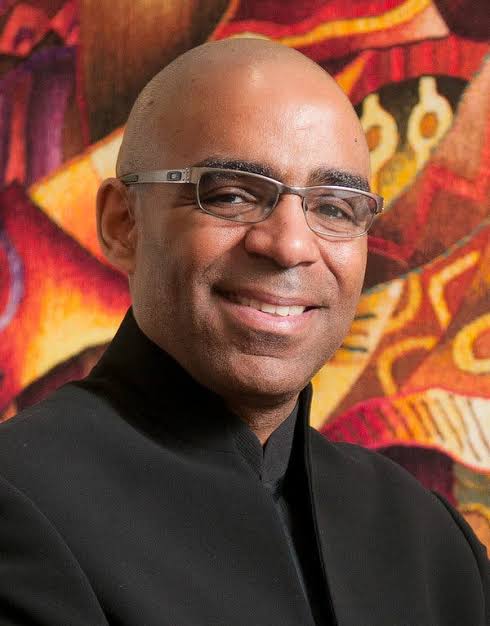
Aaron P. Dworkin
Poetjouranlist & Author of The Entrepreneurial Artists
Professor of Arts Leadership & Entrepreneurship, The University of Michigan
Founder, The Sphinx Organization
Member, The National Council on the Arts, MacArthur Fellow
- Negro Folk Symphony by William Dawson
A wholesome, solid, work that is well-curated and easy to program. - Three Black Kings by Duke Ellington
Similar: a classic that deserves more light of day. - Symphony of the Sphinx by Coleridge Taylor Perkinson (with SATB and soprano solo)
An excellent comprehensive program piece, a chance to showcase a chorus and a brilliant platform for a soprano soloist...words by Nikki Giovanni. - Global Warming by Michael Abels (full orchestral version or string orchestra version)
A Sphinx commission, a very effective work for any occasion, but works well for social justice/current events inspired programs. - Delights and Dances by Michael Abels (full orchestral version or string orchestra version)
Also a Sphinx commission, a versatile work, quintessentially America, works optimally for American classical programs. - Seven O'Clock Shout by Valerie Coleman
A stirring, incredibly moving work: a tribute to the pandemic and a real tribute to the human spirit. - Motherboxx Connection by Carlos Simon
Carlos is one of the most exciting voices of today. This is a monumental work, a Sphinx co-commission, one that could work for centering voices of today, but great to pair with the existing canon, as well. - Coincident Dances by Jessie Montgomery
Works great for an American program, inspired by NY culture, strong Latin jazz influences, samba, etc, it is a spectacular work to showcase American multiculturalism. - Banner by Jessie Montgomery (for chamber OR string orchestra and string quartet)
This is a Sphinx commission, a monumental work, scalable, emotionally charged and a treasure in terms of its depiction of American history. - Mighty River by Errollyn Wallen
A full, sonorous work, rich in traditional material and highly accessible.
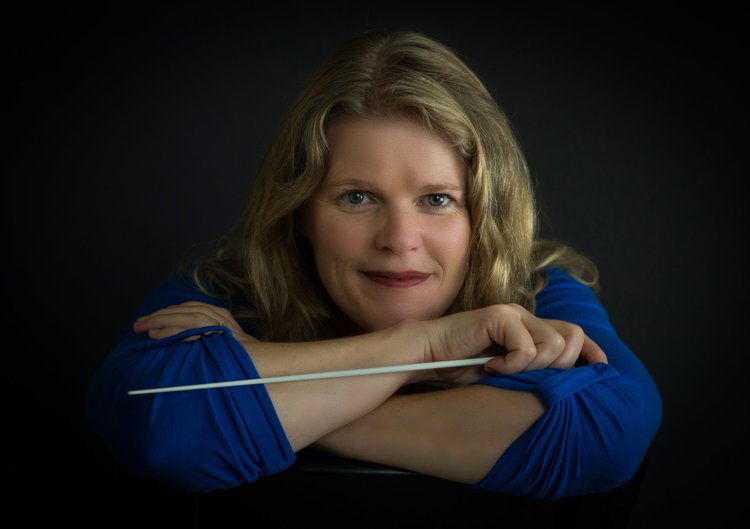
Anna Edwards, DMA
Conductor, Teacher, Lecturer
Music Director - Seattle Collaborative Orchestra
Music Director - Saratoga Orchestra
Music Director - Pacific Northwest Conducting Institute
- Arise, Athena! by Eleanor Alberga
- Snow White and the Seven Dwarfs by Eleanor Alberga
- Sankofa by Hanna Benn
- Where Springs Not Fail by Hanna Benn
- Portraits of Josephine (ballet) by Valerie Coleman
- Umoja by Valerie Coleman
- Ballade, op 33 by Samuel Coleridge-Taylor
- Piano concerto by Adolphus Hailstork
- Sonata da Chiesa by Adolphus Hailstork
- Halcyon Sun by Johnathan Bailey Holland
- Suite from The Quiet One by Ulysses Kay
- Vera by Hannah Kendell
- Toast of the Town Overture by Quinn Mason
- Coincident Dances by Jessie Montgomery
- Afro-American Suite for flute, cello, and piano (mvmt 1) by Undine Smith Moore
- Black Bottom by Nkeiru Okoye
- Symphony No. 1 in G Major, op. 11 by Joseph Bologne de St Georges
- “Africa” Symphonic Poem by William Grant Still
- Mother and Child by William Grant Still
- Lyric for Strings by George Walker
- Concerto Grosso for piano, vln, vb, and strings by Errollyn Wallen
- Five Movements in Color: Soul of Remembrance by Mary Watkins
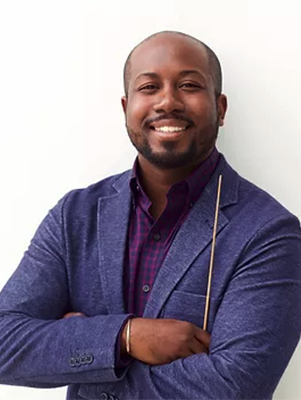
Kellen Gray
Assistant Editor and Conductor Liaison for ADMPAssociate Conductor, Charleston Symphony
Assistant Conductor, Royal Scottish National Orchestra
- Rhapsodic Overture by Edmund Thornton Jenkins / arr. Tuffus Zimbabwe
- Charlestonia by Edmund Thornton Jenkins / arr. Tuffus Zimbabwe
- Scenes from the Life of a Martyr by Undine Smith Moore
- Messages by Trevor Weston
- Flying Fish by Trevor Weston
- Iubilo by Brian Raphael Nabors
- Grass by Coleridge Taylor Perkinson
- UMOJA, an Anthem of Unity by Valerie Coleman
- Treemonisha Overture by Scott Joplin
- Negro Folk Symphony by William Dawson
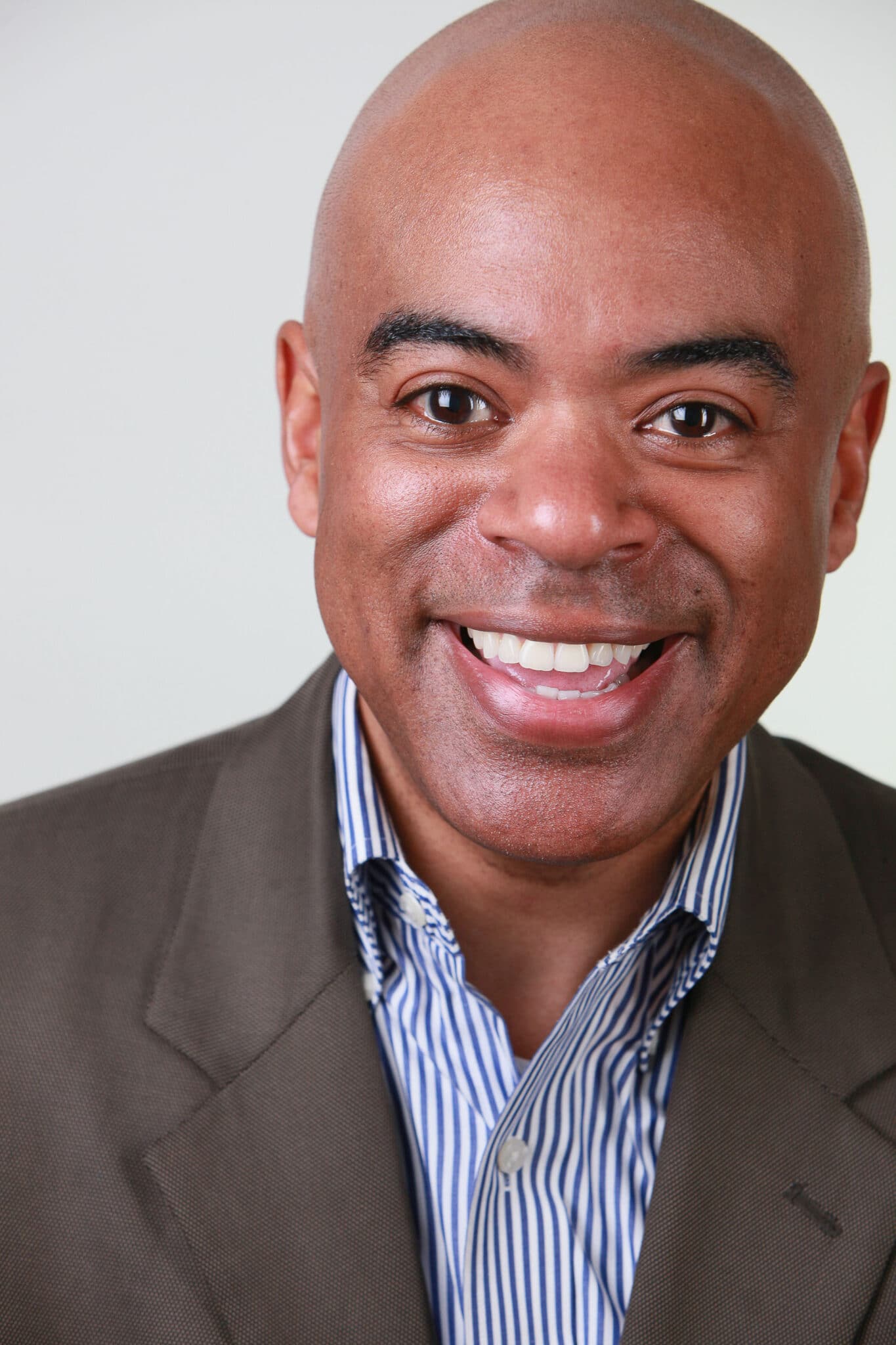
Lee Koonce
President and Artistic Director, Gateways Music Festival
Former Director of Community Relations, Chicago Symphony Orchestra
Former Executive Director, Ballet Hispanico
- Dance for Martin’s Dream by Michael Abel (12 ½ ±)
This is a dance for the orchestra and a blast to play and audiences love it! Great winds and brass sections, danceable rhythms and orchestra vocalizations at the end. Everyone will be on their feet at the end!
- Worship: A Concert Overture by Coleridge Taylor-Perkinson (7±)
An extraordinary masterpiece by one of the most gifted musicians of our time. His works should be a lot better known and history will look favorably on his output, I have no doubt. This piece was written for the Gateways Orchestra back in 2005 or 2007, I think. He and Armenta Hummings Dumisani, Gateways’ founder, were friends of many years. It uses what many commonly call the Doxology or “Praise God from Whom All Blessings Flow,” as a major theme. I suspect his use of this theme was an affirmation and acknowledgement of Armenta’s deeply held religious beliefs. It is rhythmic, contrapuntal and cinematic. Wonderful string, brass and winds sections throughout. “Perk,” as he was known to his friends, is telling a story through this piece.
- Negro Folk Symphony by William Levi Dawson (37±)
A rare, serious and profound piece. Accessible, beautifully orchestrated and an audience favorite. The titles of the three movements say it all: I. The Bond of Africa; II. Hope in the Night; III. O, Le' Me Shine, Shine Like a Morning Star! This is a serious and extremely well-constructed piece. This was one of Paul Burgett’s (Gateways former board chair and esteemed expert on the music of Black composers) favorite pieces and he introduced me and the Gateways Orchestra to it. The orchestra loved playing it and several of the musicians have asked to play it again.
Note: Despite the similarity in name, this piece is very unlike the Jazz-infused “Afro-American” symphony by William Grant Still.
- Symphony No. 1 in E Minor by Florence B. Price (40±)
This is the piece that won Florence Price the first place Wanamaker Foundation Award and that became the first composition written by a Black woman to be played by a major symphony orchestra when, in 1933 the Chicago Symphony Orchestra premiered this piece as part of the Century of Progress World’s Fair. A truly remarkable and glorious piece. It sparkles with idioms familiar in Black musical tradition, but it seems so romantic and so “now” - in fact, kind of in the vein of Dvorak’s “New World Symphony.” There is a section in the second movement in which the principal clarinet plays a passage that sounds like a running river underneath and throughout the rest of the orchestra. It is thrilling to listen to. This piece, along with Price’s Third Symphony, won the Philadelphia Orchestra their first GRAMMY. (It is amazing that the Chicago Orchestra had no Black players from its founding in 1891 until Tage Larsen joined the orchestra in 2002 – yet they still played this piece in 1933. The history about how that came about is complex, but it is still amazing!)
- Symphony No. 3 in C Minor by Florence B. Price (30±)
Michael Morgan, Gateways’ beloved and recently departed music director called this work “Miss Price’s masterpiece” and he loved to conduct it. While it does explore themes rooted in African-American music traditions, it is SOOOO much more. This piece, along with Price’s First Symphony, won the Philadelphia Orchestra their first GRAMMY.
- An American Port of Call by Adolphus Hailstork (10±)
Not the easiest piece for an orchestra to pull together, but it is certainly amazing once it is! It has a scoring technique I’ve never heard from an orchestra before – the only way I can describe it is an orchestra ocean wave. Truly fascinating to listen to throughout.
- Amen! by Carlos Simon
This piece was originally written for band, but Michael Morgan and Laura Jackson of the Reno Symphony, together, commissioned Carlos to orchestrate it for full orchestra. This piece has some of the most authentic Black Pentecostal-sounding sections I’ve ever heard in an orchestral piece. Great trombone solo and for the whole brass section, but the strings have their fun, too!
- Seven Last Words of the Unarmed by Joel Thompson (20±)
I first heard this work at a Sphinx Orchestra concert in Detroit some years ago. It is for orchestra and male chorus and the text is taken from seven unarmed Black boys and men who were unjustly killed by the police. It is powerful and beautifully written. The performance I heard was the first time I saw so many audience members at an orchestra concert sobbing because they were so moved. To say that it is powerful is an understatement. The piece requires a male chorus along with the orchestra.
- Sinfonia No. 3 by George Walker (15)
George Walker often said he wished that orchestras would play a broader selection of his works instead of relying on the same few (for which he was immensely grateful). I think he wanted us to hear his full range. Michael Morgan selected this piece for Gateways’ Carnegie Hall debut in consultation with Gregory Walker, who believed it was one of his father’s finest. It is a contemporary piece, very angular and brassy and it brought the house down. (That was a huge surprise to me at least!) Many people have told me that it was their favorite piece on our Carnegie Hall concert program!
- A Fiddler’s Tale by Wynton Marsalis
Okay, this is a little cheat, since it’s not for full orchestra…but it’s such a cool piece. It is difficult to pick just one Wynton Marsalis piece for this list. He is an extraordinary musical genius and it is evident in his compositions - if everyone didn’t already know it from his playing. This piece is a modern response to Stravinsky’s “A Soldier’s Tale.” I read somewhere that it is also available in an instrumental only version as well. For a full orchestra work, epic in scope and length, I would suggest Blood on the Fields, for which Wynton received the Pulitzer Prize for Music back in the 90’s. Thanks for letting me cheat here a little.
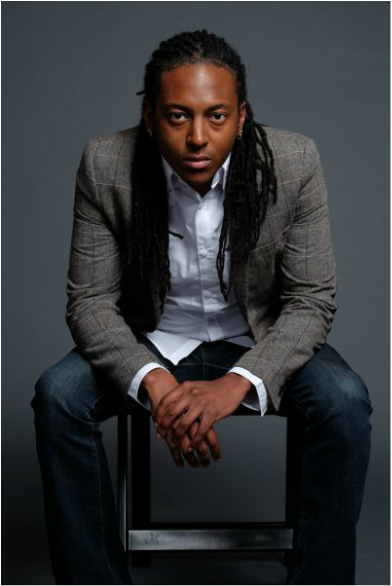
Garrett McQueen
Professional Bassoonist
Director of Artist Equity, American Composers Orchestra
Founder and Producer of Trilloquy and other racial equity radio programs
- Symphony No. 1 “Afro-American” by William Grant Still
This work is very important to me for many personal reasons, but beyond my unique perspective and experience with this piece I believe that truly understanding the Afro-American Symphony is a means of understanding the evolution of western orchestral music as it relates to Black history and culture. In addition to completely and strictly following the parameters of a typical romantic-era symphony, Still’s Symphony No. 1 showcases the opportunity for composers, educators, and composers to help people understand an orchestral experience through their own unique cultural understanding. While many complain that this work is over-played, I believe that we must make it as familiar and ubiquitous as Beethoven’s 5th. Still’s “Afro-American” is a pillar to American musical achievement and must be treated as such.
- Sahdji by William Grant Still
Most lists of works by Black composers include multiple selections from William Grant Still, and while I try to operate outside of this practice (considering the vast array of Black composers to choose from) I would be remiss if I didn’t include Still’s “Sahdji” on this list. The first time I heard this work was during my time in local public radio; I was digging through the stacks to find works to help celebrate Still birth anniversary and discovered something dissonant, contemporary, multi-disciplinary, and fully Black. Like Still’s “Africa”, I see “Sahdji” as painting a picture that Black folk in the early 20th century couldn’t see otherwise: an artistic portrayal of the land from which they came but knew little about. The ending is particularly thrilling, ending with a collective shout from the choir that highlights not only the horrors of the story that Still is telling in this piece, but also the challenges that define many Afro-American experiences.
- Montgomery Variations by Margaret Bonds
While attending a lecture hosted by the Gateways Music Festival, I had the pleasure to hear Dr. Tammy Kernodle speak on the intersections of Black American History and orchestral music, which the major work highlighted being Bonds’ “Montgomery Variations”. A professional recording of this work was only recently created by the Minnesota Orchestra, which means this piece is still relatively “new” to many listeners. It’s easy to think about orchestral music as existing separately from the individuals who pushed the Civil Rights Movement of the 1960s, but this work highlights the collaborative nature of all activist workers, from those who marched on the streets to those who wrote music to be performed in predominantly white spaces. I hope to see this suite performed more and more in the coming years, considering its recent re-discovery by professional orchestras.
- X by Terence Blanchard
Terence Blanchard’s name wasn’t familiar to a lot of people before the MET premiere of “Fire Shut Up In My Bones”, but he’s been writing music for Black people for a long time. While programming and producing the second season of my nationally syndicated radio show, “The Sound of Thirteen”, I decided to include an episode dedicated to Black achievement in film scoring. After a short search I was reminded that Blanchard wrote the music for several movies. My personal favorite is his score to “Blackkklansman”, but I believe his score to “X” is one that should be studied and heard more often. The way he takes the major motif of the score and fits it into different musical backdrops is brilliant, with the section titled “To Mecca” being a beautiful example of how Black composers have utilized the classical sounds of places other than Western Europe to paint a musical picture.
- Amen! by Carlos Simon
When you hear something that you really like in the concert hall, it's customary to say BRAVO. Well this piece of music might elicit a slightly different response – one of the main reasons I love it so much. If there's anything that most members of the African diaspora in America are familiar with, it's getting up on Sunday to go to church, and this isn’t lost on Simon. When he wrote “Amen” back in 2017, his goal was to depict a Sunday morning Pentecostal worship service. I had the pleasure of speaking to him about the piece, and he told me that he didn't want to create a caricature, but rather something that honored the energy and excitement of a worship service. This piece does exist in orchestral form, but it began as a work for band, which is another reason why I love it so much. Band is the entry point for many Black musicians, and having a work like this to celebrate Black culture in those spaces is vital.
- Harlem Symphony by James P. Johnson
The Harlem Renaissance was an integral movement for Black creators, and Johnson’s “Harlem Symphony” is a glimpse into what those days must have sounded like. Johnson was from the south but utilized stride piano in a way that resulted in not just notoriety, but an orchestral composition. I’m sure that most audiences would hear the general aesthetic of this work and associate it with “jazz” (which is fine, to a degree), but this work points directly at a style of piano playing that isn’t centered in pedagogical spaces all that often. Like Still’s Symphony No. 1, I believe that the “Harlem Symphony” must become a more ubiquitous part of American orchestral culture, in general, but certainly more ubiquitous among Black orchestral musicians and within Black orchestral spaces.
- Fantasia on ‘Lift Every Voice’ by James Cockerham
It’s hard to imagine what the contemporary Black story would be without the Negro National Anthem. It’s becoming a song that more people acknowledge at the front of sporting events and Black History presentations, but Cockerham is pushing this most important of tunes to the front with his unique expansion of the song in an orchestral setting. I first learned about this work through my collaborations with the Gateways Music Festival, and it’s that orchestra that continues to make room for this work on nearly all of their live concerts. Unlike many performances of the Negro National Anthem, this setting is filled with joy, swag, and unapologetic Blackness.
- Three Black Kings by Duke Ellington
When it comes to honoring the greatest musical Americans, Duke Ellington doesn’t get the flowers he really deserves (in my opinion). The way he codified what we call “jazz” is unprecedented and widely celebrated, but Ellington’s engagement of orchestral music is still relatively overlooked, from my perspective. I’m a fan of all his orchestral works, but the one that I think is the most important is “Three Black Kings”. It’s common to see a perspective on Blackness that begins with (and even centers) slavery, but this work expands the diasporic conversation beyond what most other composers have ever done. I appreciate the mystery and imagination of the first two movements, coupled with the more contemporary realness of Dr. Martin Luther King Jr.’s story as depicted in this work. By offering more room to “Three Black Kings” (and other Ellington orchestral works) we may stand a chance of helping people understand just how significant he was to the musical story and history of America.
- Creation of the Universe by Ozie Cargile
I’ve interviewed hundreds of people over the course of my career, but I happen to have words from Ozie about “Creation of the Universe” transcribed, that I’ll share here: I think there is a through line with “Creation of the Universe” and my coming to understand who I am as a composer. I wrote “Creation of the Universe” at 22 years old. I've been able to accomplish some significant things in my career, but in terms of the realization of my musical style and what really makes me what I am in contrast to so much of what I've learned, “Creation of the Universe” gave me the understanding that I [didn’t know I had]. So in creating that [musical] universe, it really laid the foundation for a self-discovery. Black futurism and imagination is something that I think the orchestral world needs more of, and “Creation of the Universe” is a great starting point for people who want a glimpse into what Black composers think about when imagining the future.
- Pyrotechnics by Kevin Day
Like “Amen!” by Carlos Simon, this work is primarily a band composition. I’m not sure if it exists in orchestral form, but I had to include it here because it’s a beautiful example of not just a Black concerto, but one that points to the future of music. I think with more exposure, this work will both promote the importance of wind band literature and inspire an orchestral arrangement that will bring this emerging Black composer into the world of contemporary concerto engagement.
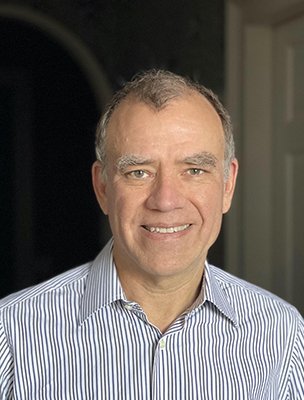
Christopher Wilkins
Contributing Editor for ADMPMusic Director, Akron Symphony Orchestra
Music Director, Boston Landmarks Orchestra
- Delights and Dances by Michael Abels (string quartet and string orchestra)
- The Ballad of the Brown King by Margaret Bonds (solos SATB, chorus, orchestra)
- Negro Folk Symphony by William Dawson
- The Chariot Jubilee by Nathaniel Dett (solo tenor, chorus, orchestra (orchestrated by Hale Smith))
- Epitaph for a Man Who Dreamed by Adolphus Hailstork
- The River by Duke Ellington (arranged Ron Collier)
- Starburst by Jesse Montgomery (string orchestra)
- Songs of Harriet Tubman by Nkeiru Okoye (soprano and orchestra; or soprano, piano, string orchestra)
- Short Piece for Small Orchestra by Julia Perry
- Symphony No. 2 Song for a New Race by William Grant Still
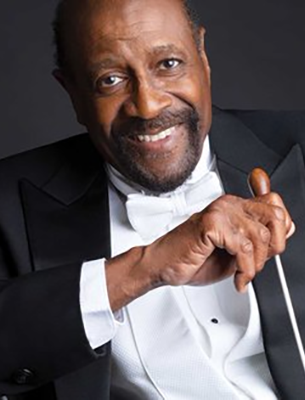
Julius Williams
Contributing Editor for ADMPProfessor of Conducting and Composition, Berklee College of Music
President, the International Conductors Guild
Music Director, Trilogy Opera Company
Laureate Music Director, Washington (DC) Symphony Orchestra
- An American Port of Call by Adolphus Hailstork
- Shades of Blue by David Baker
- Symphony Number 1 by Adolphus Hailstork
- Symphony 4 by William Banfield
- Meditation by Julius Williams
- Crystal Gazing by Dolores White
- Voices Shouting Out by Nkeiru Okoye
- Grass (strings percussion and piano) by Coleridge Taylor Perkinson
- Umbrian by Ulysses Kay
- Unburied, Unmourned and Unmarked by John Wineglass
- Rhapsodic Overture by Edmund Jenkins
- Charstonia Folk Rhapsody by Edmund Jenkins
- Toccatina for Strings by Julius Williams
- Ode To Life by Leslie Adams
- The Legacy An Overture of African American Spirituals by Julius Williams
- Inequality in an Society by Julius Williams
- Sinfonia in E for Orchestra by Ulysses Kay
- Festival Overture by William Grant Still
- Sinfonia in G by Joseph Bologne (Saint George) / Dominique De Lerma editor
- Batá by Tania Leon
- Songs of My Culture (orchestra) by Julius Williams
- African Suite, op 35 by Samuel Coleridge Taylor
- Danse Negre by Samuel ColeridgeTaylor
